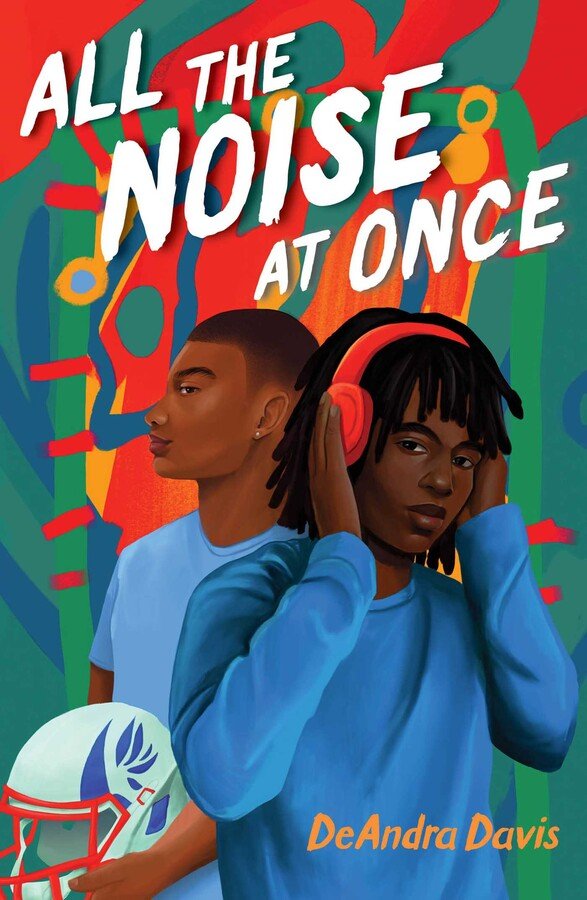“I’ve been black all my life, but until recently autism was all my reality. I have never paid attention to how my black made autism much more risky. And now I see it. I see this and Marcia, I can’t see it. “-Aiden, all noise at once
There is not enough published books about autism people published, not to mention autistic colorful people. I was very excited about hearing an advertisement about a contemporary novel for adults All the noise at once DEANDRA DAVIS and I impatiently anticipated – and wow, does not disappoint!
History focuses on Aiden, which is black and autistic and loves football. Like many of us, autistic people, it can be overwhelmed in everyday sensory situations, such as the descent of the corridor at school – but it impresses with sensual excessive stimulation of something that he loves, like the roar of a football stadium. He is humorous and insightful.
Aiden also loves his older brother Brandon, who has a very promising football career-until one conflict after the match will turn into a fight with the police called on a stage, which only worsens the situation. Because his brother is unfairly arrested, Aiden must decide how he will react to dishonest systems that he was surrounded, and how the confined expectations of other people will raise.
While Aiden was aware of how his autism can be interpreted by others, he becomes more aware of how his black can be interpreted, and how to cut both features he treats him differently – and judged – by others. The book perfectly shows the reader how aggression is built against black people in a narrative background, but this dynamics is not clearly indicated only later. But as readers we feel this tension, this accumulation, this unacceptable, despite the fact that Aiden must learn to call it. With this name, Aiden speaks against injustice.
Aiden also begins to rethink his perception of his own autism. He realizes that he was mainly passive, allowing others to decide who he is and is unable. But thanks to his journey he learns the nuance not only of accepting the challenges that his autism brings, but also takes responsibility for his autonomy, elections and behavior. He realizes that people treated him as inability to fully responsible because of his autism, thinking that he needed protection and is not able to make mature, autonomous decisions.
But when he realizes this treatment, he decides to take responsibility for his choices and accept the consequences when he breaks down. This is such an crucial nuance and complexity was rarely spoken of in relation to neurodiwezism, and I really appreciate how this book modeled an autistic person taking responsibility, while respecting the needs in the field of personal accommodation and limiting disability.
This book solves so many problems with such care and thought. Some of these topics include racism, classism and segregation of classes, stress related to perfection and being a “model citizen”, family expectations, talented and neurodiver treatment treatment in a neurotypical world, police brutality and imbalance of power – but the book never seems disgusting or didactic. All these topics are so ecologically woven into the narrative that the reader is forced to engage and think about the systems of the world in which we live. Each character is imperfect, but we can see why they do what they do – and this invites empathy and a deeper understanding for them and their travel.
In this story, there is incredible care and nuance, because he deals with such critical and necessary conversations about constant injustice in this country and the world, never limiting them to black and white categories. The history of Aiden can serve as a fantastic conversation starter for both teenagers and adult readers and should be required. He never talks to readers, but he expects them to engage with these sophisticated ideas and refined perspectives on these issues.
All noise at the same time is realistic in complex, but also hope. Aiden and Brandon as well as their friends and family are going through so many complex things, but at the end of the tunnel there is also featherlight. There is also joy and humor and a promising future. Especially in these times, the dose of realistic hope is more crucial than ever.
I really hope that this book will receive the Schneider Family Book Award award, an award for books about experience in disability and that you can read it, even if you usually don’t read Ya books. If you do this, I hope you give it to youthful readers in your life.


